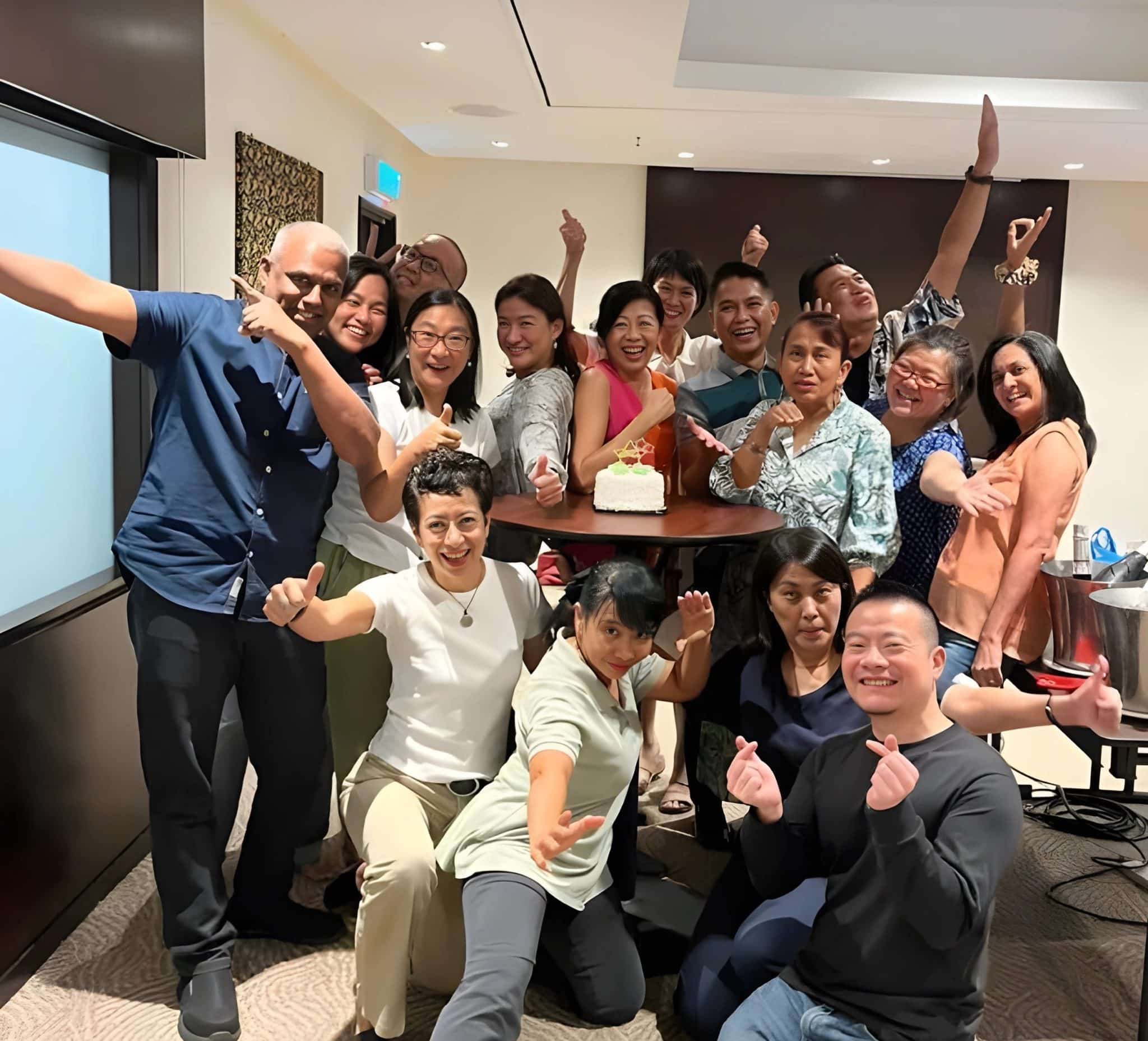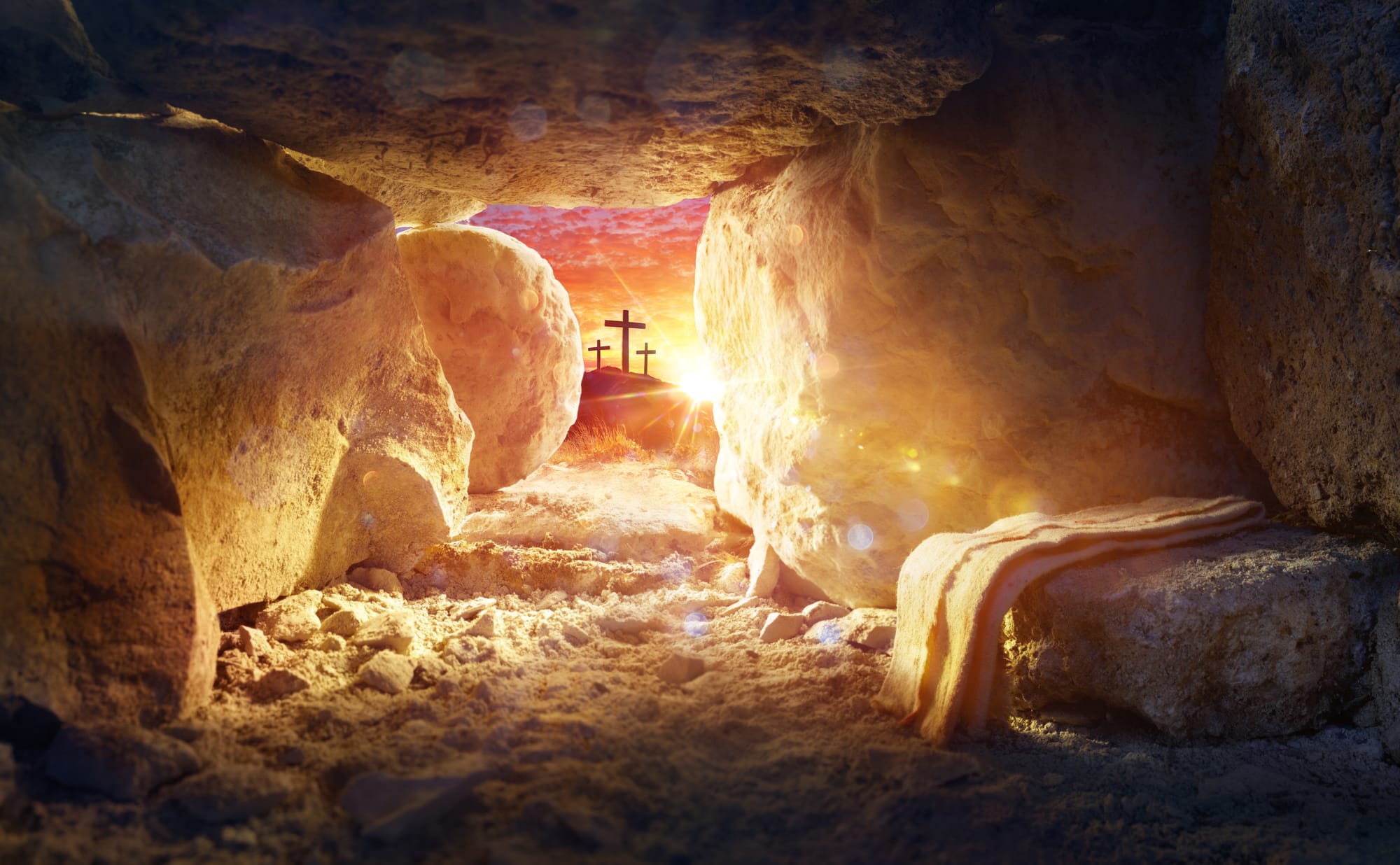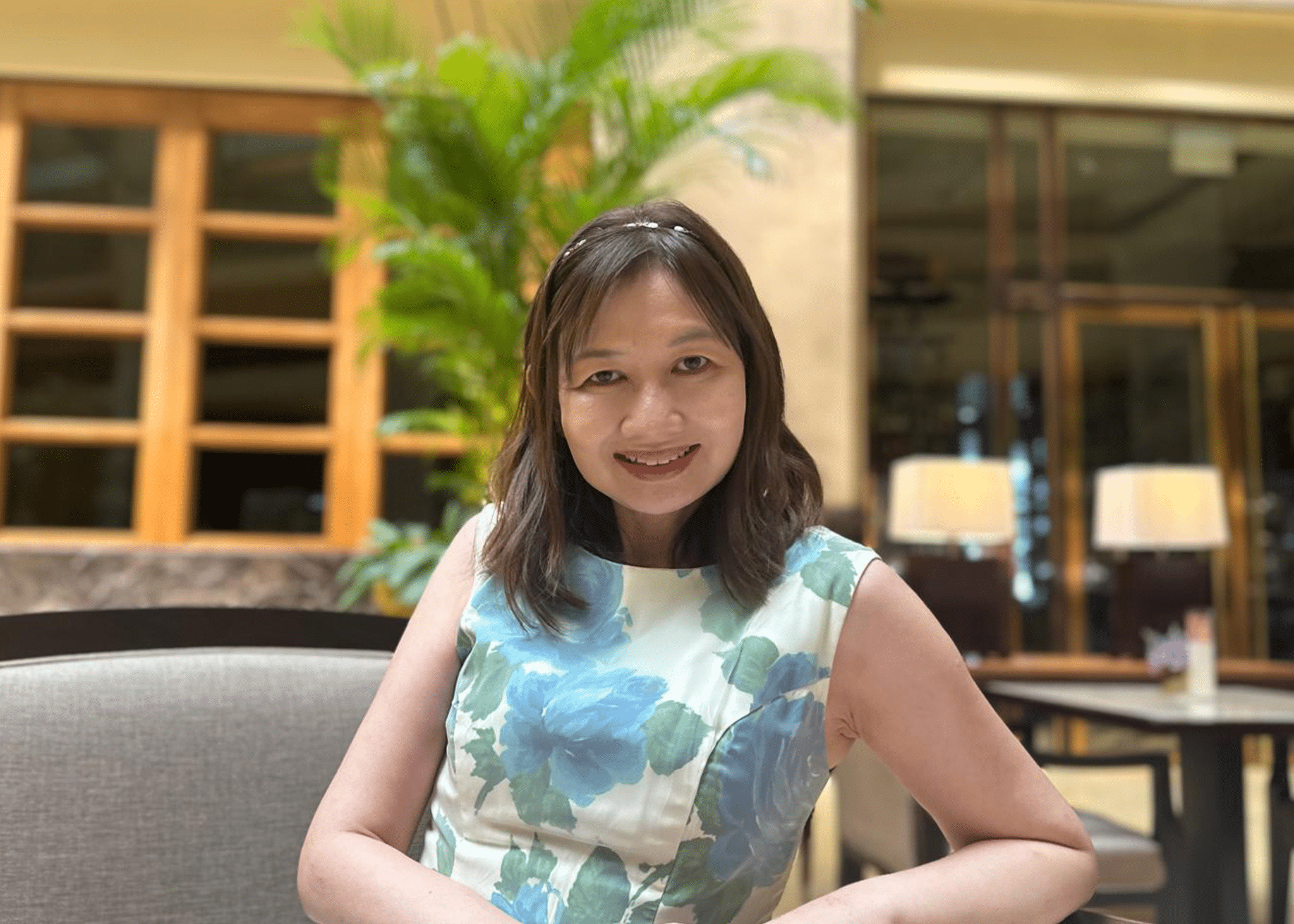“I saw the need to forgive, but I wasn’t willing to let injustice go”: Max Jeganathan’s journey to reconciliation
by Gracia Lee // November 10, 2020, 1:00 am
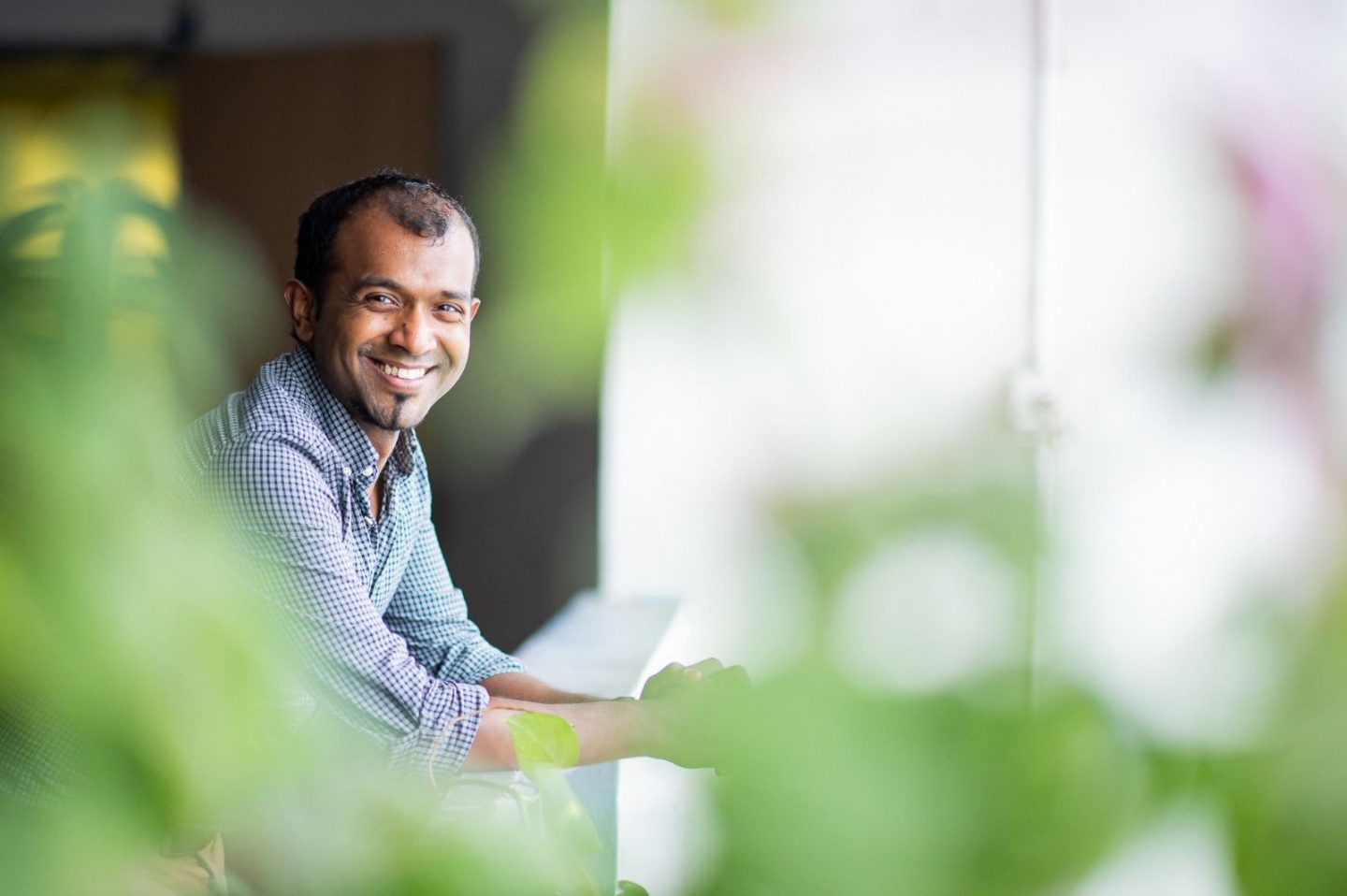
In a deeply personal story, Max Jeganathan, Director of RZIM Asia-Pacific, who was a refugee from Sri Lanka, discovers the one place where justice and forgiveness meet. All photos courtesy of RZIM Asia-Pacific.
Confident yet unassuming, Max Jeganathan, 37, has a natural way of putting others at ease.
The evangelist and director of Ravi Zacharias International Ministries (RZIM) Asia-Pacific, who came to Singapore in 2017, is also well-informed and eloquent, having spent many years as a lawyer and political adviser to the Australian National Parliament.
He is also a refugee.
Jeganathan was barely a year old when he and his parents were forced to flee Colombo, Sri Lanka, on a cargo ship, following a close encounter with death in the midst of violent racial riots.
Detailing his family’s story in a short film by RZIM, Jeganathan recounted how a Sinhalese paramilitary gang barged into their home and accosted them.
This was in 1983, during the 26-year-long civil war that ravaged the country, fuelled by racial tensions between the majority Sinhalese population and the Sri Lankan Tamils.
Clutching his infant in his arms, Jeganathan’s father hid in the bathroom at the back of the house, protected only by an old wooden door with a flimsy latch. Meanwhile, his mother was stuck in the front of the house.
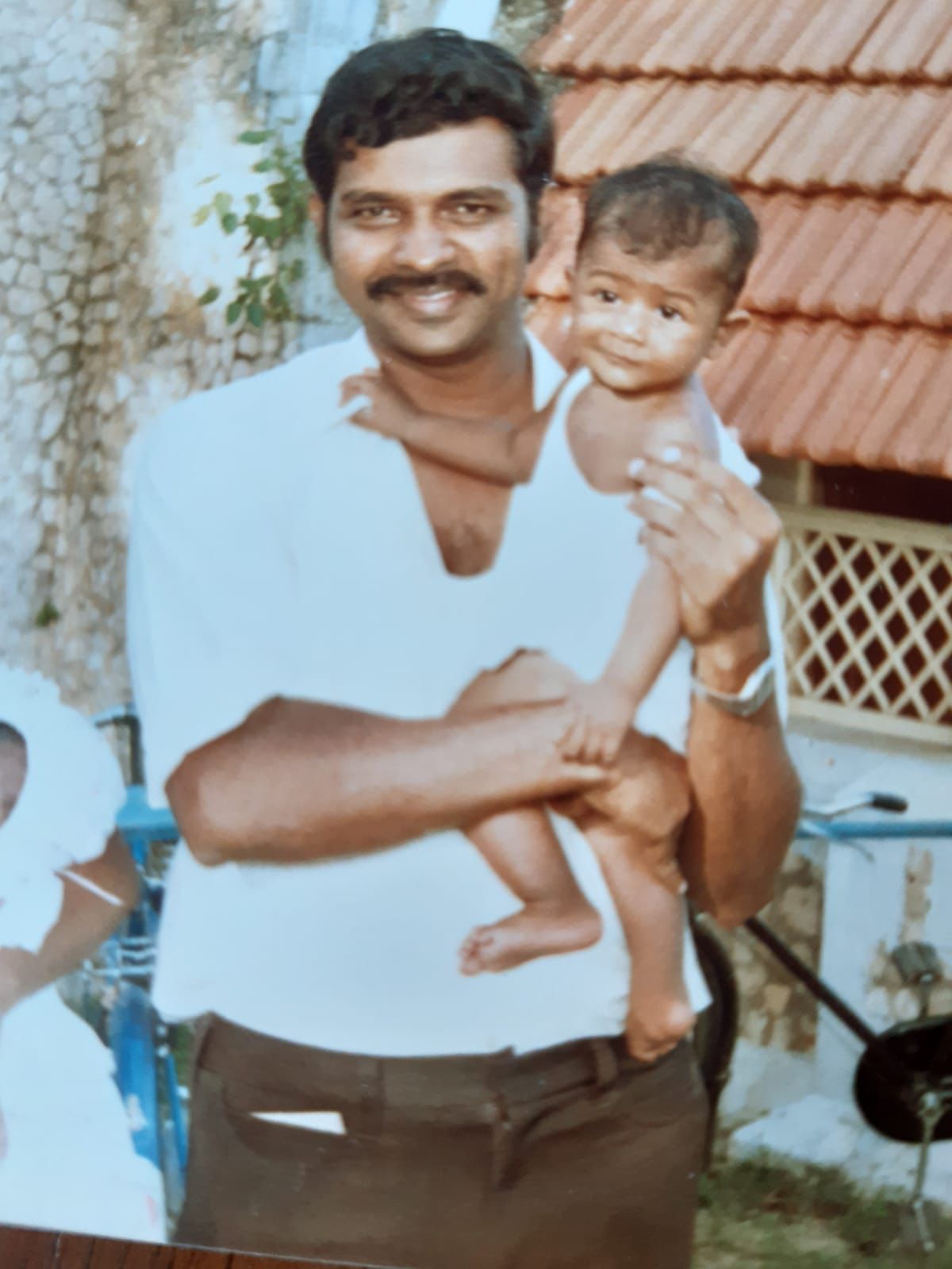
Young Jeganathan with his father in Sri Lanka.
As the gang banged on the raggedy door, “all that (my father) and my mom could do at the moment was just to pray”, said Jeganathan, who relies on his parents’ account of what happened as he was only a baby at the time.
Miraculously, the door held up and the gang eventually left. But not before assuring the family that they would be back to burn the house down.
I couldn’t speak on justice and forgiveness unless I’d actually worked it out.
Grabbing nothing but a diaper bag – there was no time to take anything else – the family eventually fled their homeland and sought refuge in Melbourne, Australia.
There, they were granted refugee status and allowed to rebuild their lives in a foreign land.
For years, Jeganathan harboured anger, bitterness and resentment at what had happened to his family and others like them.
In 2018, the late apologist Ravi Zacharias challenged Jeganathan to return to Colombo with him and give a talk on justice and forgiveness.
“I couldn’t speak on justice and forgiveness unless I’d actually worked it out,” he said.
Sitting down with Salt&Light at the RZIM Asia-Pacific office, he shared frankly about his journey from resentment to reconciliation, describing this process as “one of the hardest things” he has done.
Did your bitter past haunt you?
All through my younger years, I harboured a lot of anger towards the Sri Lankan government and the Sri Lankan people.
What was going through my mother’s mind, having her husband and her only child about to be killed?
It was really the thought of what my parents had to go through, particularly on that night (when we were almost killed).
I often think back to what that those moments were like for them. My mother having her husband and her only child about to be killed in a locked bathroom out back. What was going through her mind?
And for my father, having his wife stuck in the front room, completely unprotected, while he’s trying to save my life, and knowing we were probably not going to make it.
Just the injustice of good people whom I love so much having to endure that … it was very difficult.
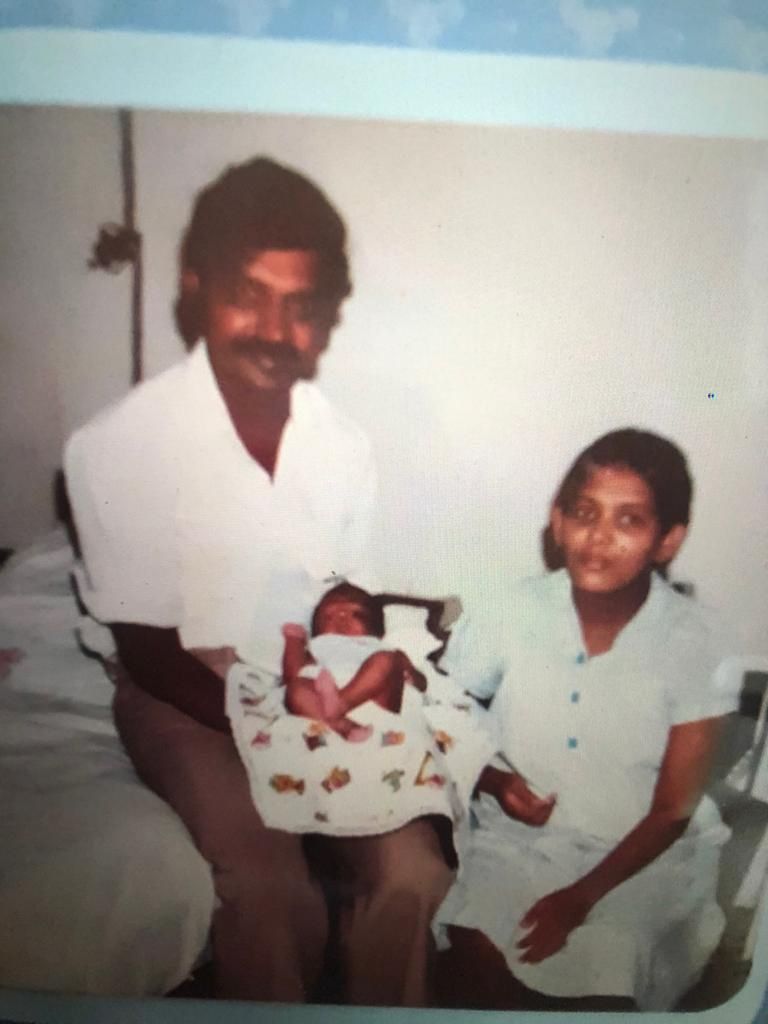
Jeganathan as a baby with his parents in Sri Lanka.
All of my uncles and aunties – my dad is one of eight and my mum is one of five – had to go through something similar in one way or another.
I remember driving around Melbourne with my parents, picking up our furniture from what other people were throwing away.
They’re all refugees. They never had the opportunity to raise their children in the country where they were raised.
In Australia, I saw them start with nothing. I remember driving around in the suburbs in Melbourne with my parents, picking up our furniture from the side of the road from what other people were throwing away.
Growing up, I kept in very close touch with what was happening in Sri Lanka. It was really sad because there was never good news coming out of Sri Lanka.
We lost some family members in the riots. We had family friends killed. We’d hear about journalists disappearing, people getting killed, white vans just turning up and taking people away.
We would see literally boatloads of Sri Lankan Tamils – people exactly like us – coming across from Sri Lanka to Australia’s shores well into the 2000’s.
It affected me more so because I had to see the disappointment and the hurt in my parents and my uncles and aunties. It was their country more than it was ours.
So, to see their homeland deteriorating and to see the Tamil people being treated worse and worse and worse, it was sad. I really struggled, even after giving my life to Christ at 15, to deal with this bitterness.
Did you struggle between justice and forgiveness?
Part of my fight for justice was very selfish because I was just still angry. I was all about justice in quite a confronting way: Justice for myself, my family and my people.
Part of it was because I was a lawyer. I just felt like there had to be a public acknowledgement of what happened and there needed to be some kind of compensation or restitution.
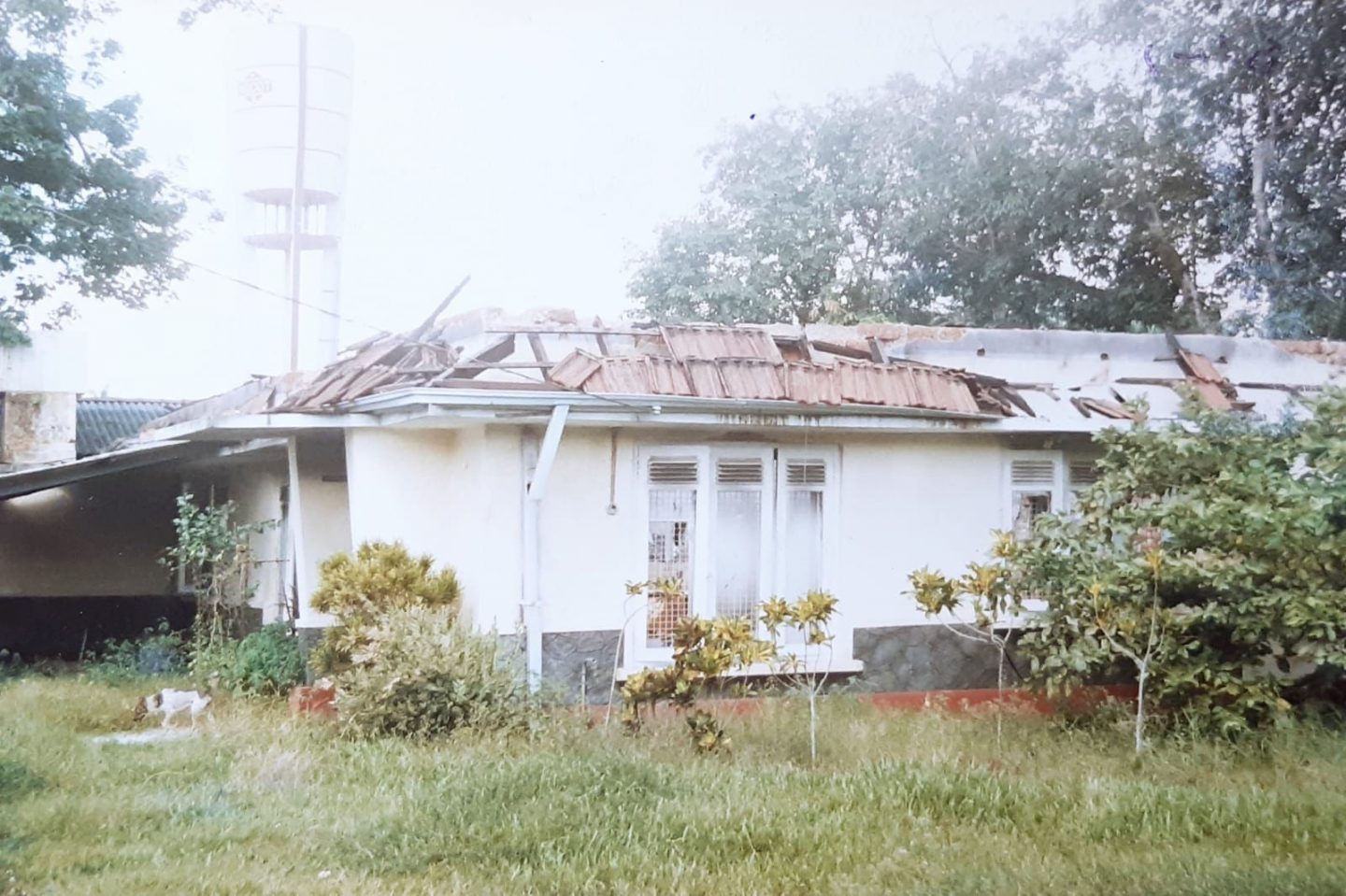
Jeganathan’s family home in Sri Lanka before it was set on fire by paramilitary gangs in 1983.
But the main struggle I had, while I was still working out the (significance of the) cross, was this choice between justice and forgiveness.
I’m not that flustered about justice. But when people are treated unfairly, that really gets to me.
I saw the need to forgive, but I just wasn’t willing to let injustice go.
I’ve always had a deep hatred for injustice. I can’t bear even a small thing. I just hate it.
I probably hate injustice more than I love justice! I’m not even that flustered about justice. But when people are treated unfairly, that really gets to me.
I thought about the Jewish people and what they went through during the Holocaust. I thought about the Cambodian people and what they went through during the reign of Khmer Rouge. I thought about the Chinese people and what they went through in the Cultural Revolution.
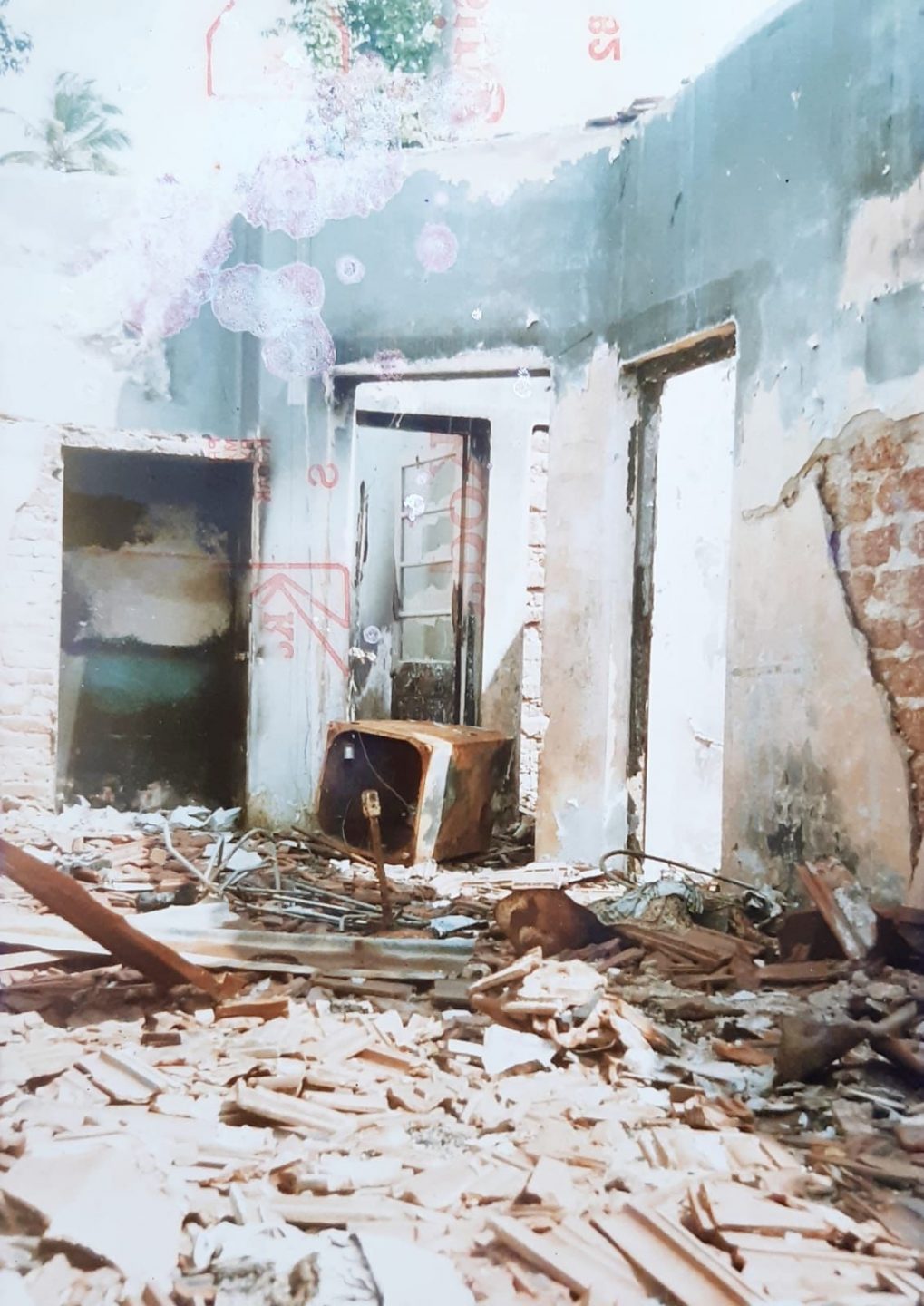
What was left of Jeganathan’s home after it was burned down.
And I was like: If I let this go when it’s my own people, if I just swallow this and forgive (my oppressors), then I would have no moral credibility left to talk about righting wrongs or to speak against all these other injustices in the world.
So, it really did come back to that theological problem of having to choose between justice and forgiveness.
How did you reconcile this tension?
It was a process that took many years.
That bitterness never had an answer until I understood that, at the cross, I don’t have to choose between justice and forgiveness.
The cross is the only place in human history where you have perfect justice and perfect forgiveness coming alongside each other.
The cross is the only place in human history where you have perfect justice and perfect forgiveness coming alongside each other.
One thing I’ve learned very clearly is that, whenever there is injustice, Jesus stands with the victim. He doesn’t stand with the oppressor.
He loves the oppressor and there’s a pathway (to salvation) … but in the moment of injustice, Jesus is on the side of the victim.
That gave me a lot of comfort, strength and encouragement. This isn’t some abstract God that says: Oh, I just love you all. We all just need to love each other and forgive.
No. He hates injustice. There’s a Day of Judgement. These people will be held to account. And in this whole thing, he stands with me.
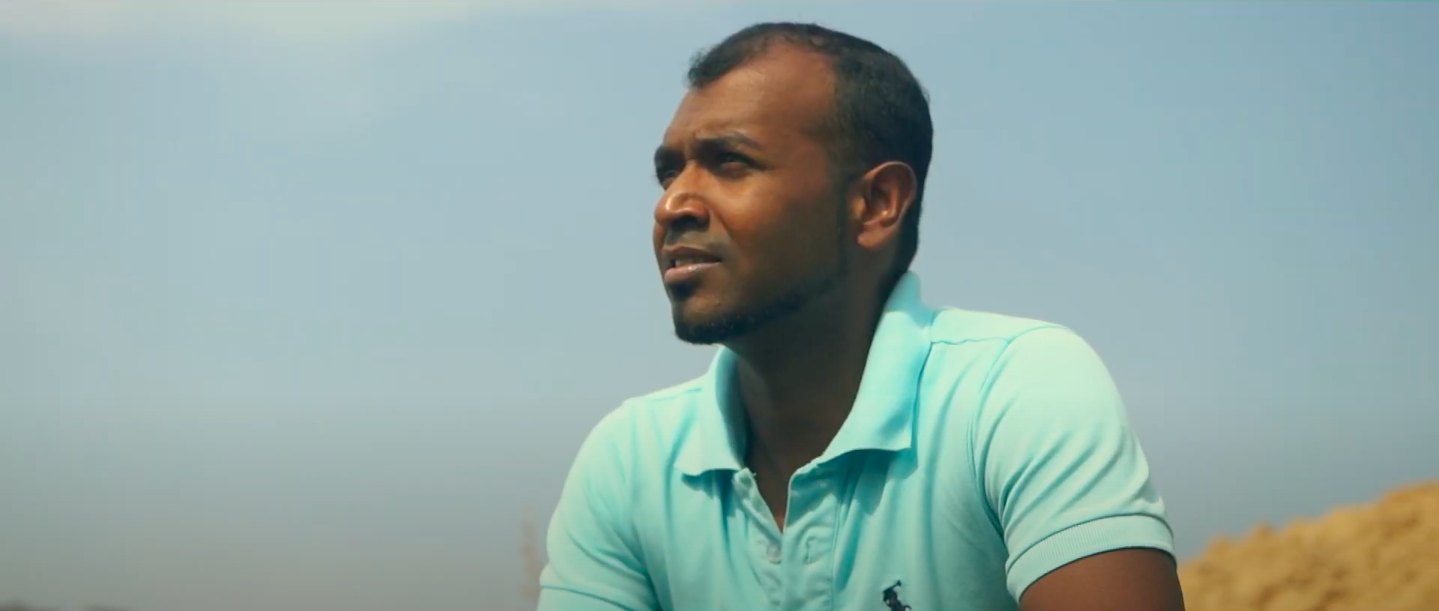
Jeganathan was unable to let go of his bitterness and anger until he found that both justice and forgiveness can be found at the cross. Screengrab from RZIM video.
But the next stage of that story is: I also stand with the oppressor before God as a broken person.
The more I got a clearer glimpse of the cross and the heart of God, my own darkness and imperfections became clear.
We’re all raised to think that the fight between good and evil is between us and evil people out there. But it’s become increasingly obvious to me that the fight between good and evil is in every human heart, including mine.
We are all broken people who need the saving and transforming love of Jesus Christ.
Whenever there is injustice, Jesus stands with the victim.
So, the oppressor and the victim stand together before God in their brokenness. But when the oppressor and the victim are facing off, Jesus stands with the victim.
However, the pathway of redemption for both is by the grace of God through the love of Jesus. And that’s the beauty of how God brings justice and forgiveness together.
As the Lord was working on my heart, a Sri Lankan who was living in Singapore – he’s Sinhalese – read about my story and, out of the blue, invited me to a café.
And in that café in downtown Singapore, in front of everyone, he got on his knees and apologised on behalf of the nation of Sri Lanka and the people of Sri Lanka to my family and I.
After that, he asked me for forgiveness, gave me a present and we prayed together – not just for each other, but for the people of Sri Lanka, that they would know this supernatural love that we had found in Christ.
I think that was quite seminal because a lot of things that the Lord was working on my heart hit home that day.
For him to do that as a follower of Jesus, that really ran home the beauty of the cross. He was clearly getting the capacity to do this not from himself, because people can’t do that in their own strength. People can’t do that.
That was a reflection of the power of the cross.
Would you say you’ve forgiven your oppressors?
Yeah, I’ve definitely let go of the bitterness and I have forgiven.
But there’s still a lot of oppression in Sri Lanka and there’s still deep injustice.
The eradication of injustice is fundamental in the heart of God.
A lot needs to be done in Sri Lanka, not because of what my family and I went through, but because of what people there are still going through – persecution, racism, oppression, economic and political discrimination.
So I still believe in fighting for justice. As my faith grew, that commitment to justice grew as well because the Bible is just packed with it.
The eradication of injustice is fundamental in the heart of God. You see it through Isaiah, you see it through Amos, you see through Matthew 5-7, you see it again and again and again. Jesus is talking about it. God’s talking about it.
I think one of the problems of Christian forgiveness is that people think once you forgive that’s the end of the story.
Well, no. Forgiveness just restores our relationship with God. That’s why we forgive, because it’s an outworking of the love that we’re received. God says: Don’t come to me with a bitter heart. Go forgive your neighbour first, then come to me (Matthew 5:23-24).
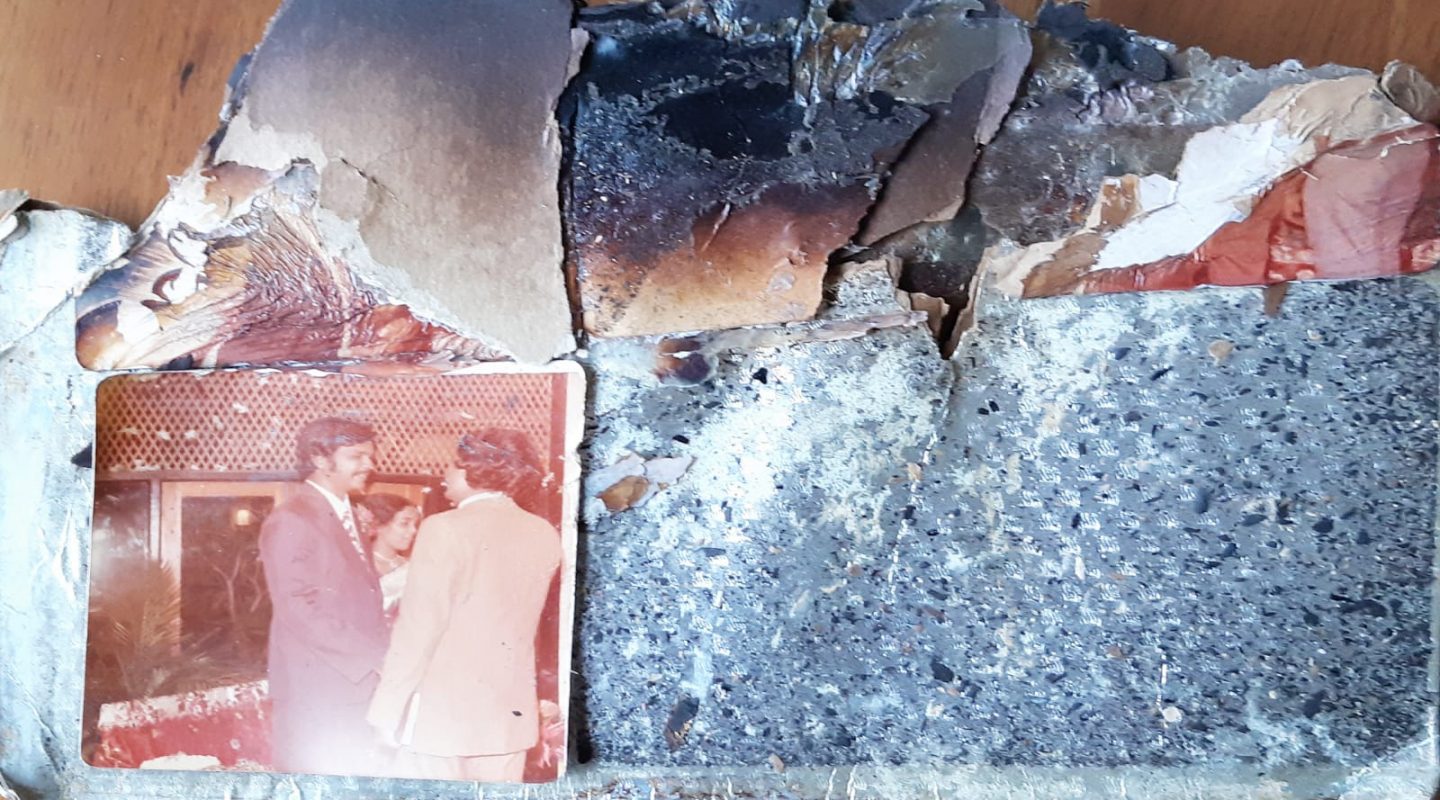
Burnt photos that were salvaged after their house was burnt.
So, forgiveness restored that relationship, and it also enabled me to now go back to Sri Lanka and serve the people there because I had a renewed heart for their need for the Gospel.
I’m in a much better place. I have a lot of Sri Lankan friends now who are not Tamil. We do a lot of work with the Sri Lankan church. And I want to do what we can as RZIM to serve that country.
So yeah, there’s still unfinished business in the justice category, but there’s no more unfinished business in the forgiveness and restoration category, thanks to the cross of Christ.
You’re still fighting for the eradication of injustice. But what is different about how you were fighting before and now?
Before, I was fighting for it because I was angry.
I bring things to the table now that I didn’t have before, like a narrative of redemption and reconciliation.
Now I’m fighting for it for two reasons. Firstly, because I’m obedient and fully submitted to a God who tells me to do that.
But also because that’s what is very naturally and logically required of me if I’m to believe what I do believe that people are made in the image of God, and there’s intrinsic dignity in all people.
Injustice is when the dignity of God is violated because the dignity of people is violated.
I understand that now and rail against it when I can from a healthier place, a more godly place. And I bring things to the table now that I didn’t have before, like a narrative of redemption and the transformative power of reconciliation.
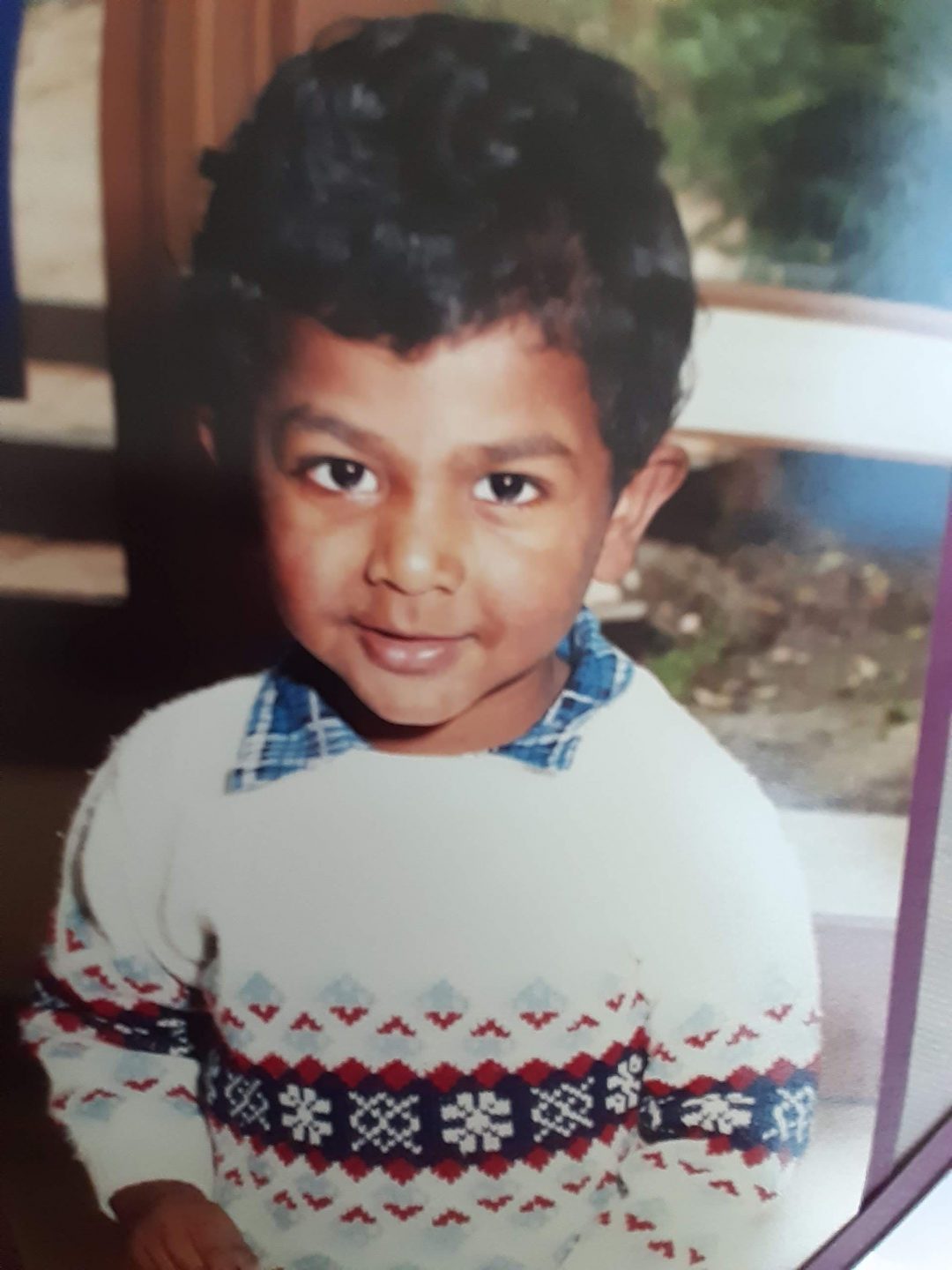
Jeganathan as a young child in Australia.
In Amos 5, God says to his people: There are those who turn justice into bitterness and cast righteousness to the ground (Amos 5:7, NIV). There are many calls for justice in the world today, but so many of them are bitter and they’re from an angry place. And the reason is because righteousness has been thrown onto the ground.
Righteousness in this regard is best understood as being right with God. We aren’t righteousness ourselves. Everyone’s messed up. The only place righteousness can even make sense to a person is through Jesus.
And so what God is saying in Amos – and he says it again and again – is that you can’t really talk credibly about justice in a transformational sense without also understanding that it first has to come alongside being in right relationship with God.
What God is saying is this: Don’t try to fight injustice out there without Me. Don’t try to understand it without Me.
Justice and righteousness have to go together. Later in that very same chapter in Amos, God says: Let justice roll down like waters, and righteousness like an ever-flowing stream (Amos 5:24).
What God is saying is this: Don’t try to fight injustice out there without Me. Don’t try to understand it without Me. Don’t try to make sense of it without Me. Don’t try and build narratives of redemption without Me because none of it will work.
Without the cross, you won’t have a pathway to redemption, restoration or reconciliation. Ultimately all that you’ll have is anger. And your attempts or calls for justice will become bitter. I know that. It’s exactly what mine were.
As Christians, we’re not just called to do God’s will. We’re called to do God’s will in God’s way. That’s important. It’s part of obedience and submission to God’s plan and Kingdom.
But even if you’re not a Christian, from a very pragmatic sense, it’s just not effective doing it the other way. I tried it in my tiny little life and situation.
So, even if you don’t believe people are made the image of God, don’t you want a justice that actually works? Then this is the only way to do it.
MORE STORIES ON SOCIAL JUSTICE:
Is the middle-class Church in Singapore getting too comfortable?
We are an independent, non-profit organisation that relies on the generosity of our readers, such as yourself, to continue serving the kingdom. Every dollar donated goes directly back into our editorial coverage.
Would you consider partnering with us in our kingdom work by supporting us financially, either as a one-off donation, or a recurring pledge?
Support Salt&Light